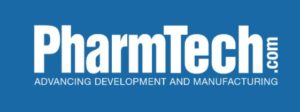Published Articles
Q: My company is preparing to transfer in a new product to one of our manufacturing facilities. Previous technology transfer pharmaceutical projects have not always gone smoothly for us. How can I ensure that this transfer goes well?
A: This is a great question and frequently asked. It is important to understand the requirements for a successful technology transfer. These concepts are used when transferring product from a research environment to clinical trial manufacturing, a clinical-trial manufacturer to a commercial-product manufacturer, between company facilities, and/or to a contract manufacturer.
Let’s say that Company A wants to outsource the manufacturing of product to Company B, a contract manufacturer. Company B cannot perform all of the necessary testing associated with the product manufacturing and release, and they need to contract out some of the testing to Company C. In this case, the technology transfer would involve three parties who will need to be included in the technology-transfer process.
Tech Transfer
The questions to answer for a successful product transfer become:
- Who needs to know what to have a successful transfer?
- How do we maintain open lines of communication between all the involved parties?
- How does this all get managed?
It is important for all parties to be engaged in the technology-transfer process, and because technology transfer can mean different things to different people, one of the first steps in the process should be to establish a common understanding of terms and definitions between all the parties involved. Without a common understanding and/or language, the technical-transfer activity can become confusing, frustrating, and ultimately, unsuccessful.
Tech Transfer Pharmaceutical
The Pharmaceutical Research and Manufactures of America’s Quality Technical Committee developed a good definition for technology transfer in 2003. They defined technology transfer as, “The body of knowledge available for a specific product and process, including critical-to-quality product attributes and process parameters, process capability, manufacturing and process control technologies, and quality systems infrastructure”. The objective of the transfer is to impart knowledge that will allow for smooth, continuous manufacturing of the product regardless of its stage in the product lifecycle. This knowledge includes not only what works but also what hasn’t worked.
Once a common understanding is established, the best way to ensure that you have a successful technology transfer is to maintain open lines of communication and develop a timeline that defines when crucial steps in the transfer will be performed. When any of the parties stop communicating or cease to share information, then the technology transfer will fail. It is important for all parties to maintain open communications through the technology-transfer activity.
Technology Transfer Examples
The following six technology transfer examples should be kept in mind as best practices:
- Robust information exchange. Without a robust and transparent exchange of information the technology-transfer activity has the potential to be frustrating and delayed while people try to find a common understanding and locate necessary information crucial to the success of the activity.
- Planning and project management. By having a good plan and project management tools, the technology transfer is more likely to be completed on time. Establishing realistic deadlines and scheduling the work to meet those deadlines will, again, contribute to a successful technology transfer experience.
- Transfer of analytical assays. It is important to make sure all analytical methods are transferred and that the methods are validated. This helps ensure that the transfer was done correctly and that the site receiving the information can produce the product and analyze it without significant problems arising.
- Small-scale verification at the receiving site. This activity helps keep the project on track. If the small-scale verification can be performed successfully, it is an indicator that the scale-up will go smoothly.
- Pre-GMP engineering runs are desirable. These are not necessary but are desirable because they assure that the equipment being used is functioning properly.
- GMP runs. This is the final step in the process validation and is necessary to confirm that the technology transfer was successful.
Technology Transfer Pharmaceutical
Many regulatory authorities reference the concepts of tech transfer in their respective regulatory frameworks. Volume 4 of the European Union’s Guidelines for Good Manufacturing Practice for Medicinal Products for Human and Veterinary Use makes multiple references to technology transfer.
In section 1.2, it states that GMPs apply to technology-transfer activities. Chapter 4 of the EU guidelines requires:
“… written policies, procedures, protocols, reports and the associated records of actions taken or conclusions reached, where appropriate, for the following examples … Technology transfer …”
Chapter 6 of Volume 4 has a section devoted to the technology transfer of testing methods. The last section of EudraLex Volume 4 that deals with technology transfer is Chapter 7 on Outsourced Activities. This section clearly states that there needs to be written material around transfer.
FDA Contract Manufacturing
FDA has chosen to address the issue of tech transfer in their guidance titled Contract Manufacturing Arrangements for Drugs: Quality Agreements. This guidance states that:
“A comprehensive Quality Agreement will provide specific terms related to the particular product or products involved” and “the Quality Agreement should include product/component specifications; defined manufacturing operations, including batch numbering processes; responsibilities for expiration/retest dating, storage and shipment, and lot disposition; responsibilities for process validation, including design, qualification, and ongoing verification and monitoring…”
The bottom line is that to have successful transfer you need to have a common understanding and language, a way to manage the various steps and information that are crucial to the product, and you need to maintain open communications between all the parties involved in the process.
Article Details

Pharmaceutical Technology
Vol. 40, No. 4
Pages: 92–94
To begin the Regulatory Compliance Associates scoping process today, please enter your information in the blue form below and click the submit button at the bottom of the webpage. You may also email us at [email protected].
Connect with RCA Today
Contact us to learn more about our regulatory compliance experts and how they can help



















